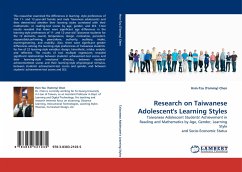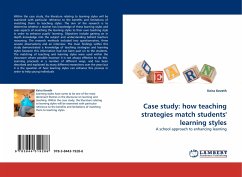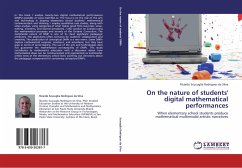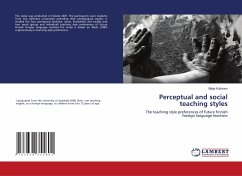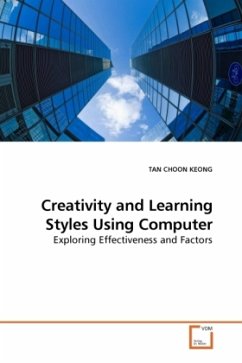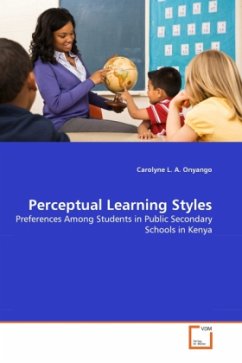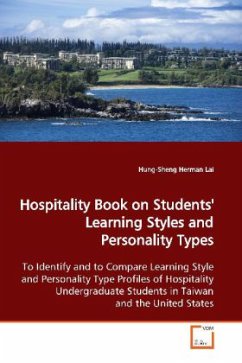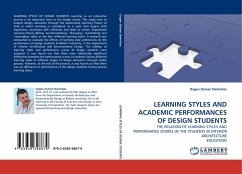
LEARNING STYLES AND ACADEMIC PERFORMANCES OF DESIGN STUDENTS
THE RELATION OF LEARNING STYLES AND PERFORMANCE SCORES OF THE STUDENTS IN INTERIOR ARCHITECTURE EDUCATION
Versandkostenfrei!
Versandfertig in 6-10 Tagen
39,99 €
inkl. MwSt.

PAYBACK Punkte
20 °P sammeln!
LEARNING STYLES OF DESIGN STUDENTS Learning as an interactive process is an important issue in the design studio. This study aims to analyse design education through the Experiential Learning Theory of Kolb in which learning is considered as a cycle that begins with experience, continues with reflection and leads to action. Experiential Learning Theory defines accommodating', diverging', assimilating' and converging' styles as the four different learning styles. A research was conducted to evaluate the effects of learning style preferences on the performance of design students at Bilkent Unive...
LEARNING STYLES OF DESIGN STUDENTS Learning as an interactive process is an important issue in the design studio. This study aims to analyse design education through the Experiential Learning Theory of Kolb in which learning is considered as a cycle that begins with experience, continues with reflection and leads to action. Experiential Learning Theory defines accommodating', diverging', assimilating' and converging' styles as the four different learning styles. A research was conducted to evaluate the effects of learning style preferences on the performance of design students at Bilkent University, in the department of Interior Architecture and Environmental Design. The relation of learning styles and performance scores of design students were analysed. It was found out that there were statistically significant differences between the performance scores of students having different learning styles in different stages of design education through studio process. However, at the end of the process, it was found out that there was no difference in performance of the design students having diverse learning styles.



